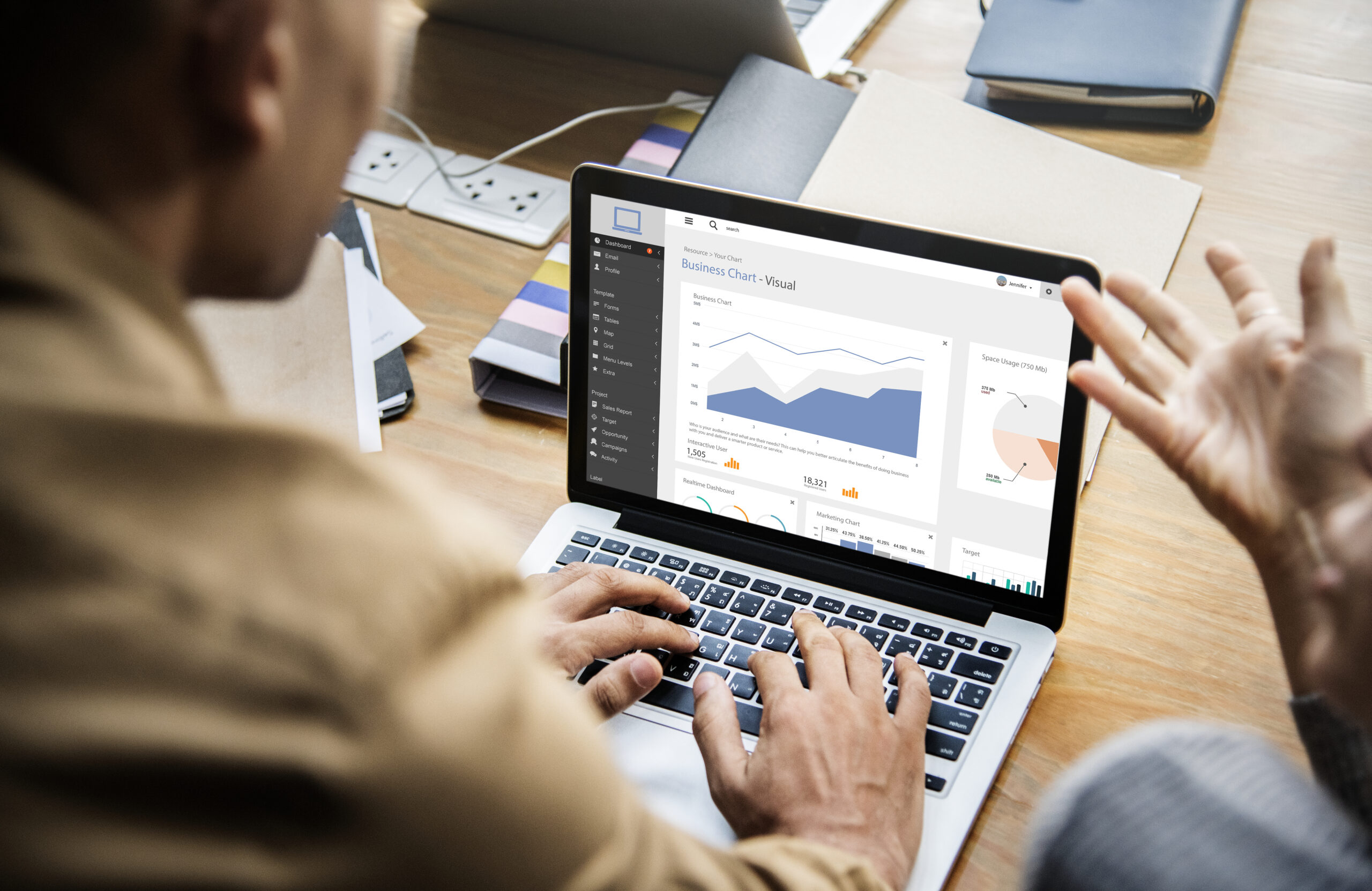
In today’s competitive digital landscape, businesses cannot afford to guess where to put their marketing dollars. Every decision needs to be strategic, especially when it comes to the balance between organic search (SEO) and paid search (PPC ads). Both play critical roles in driving traffic and generating leads. However, their impact, cost structure, and long-term value differ significantly. Choosing the right mix is not just about spending money. It’s about investing wisely for measurable returns.
This guide will walk you through the differences between organic and paid search, explain where each shines, and most importantly, show you how to budget effectively to achieve sustainable results.
What is Organic Search?
Organic search refers to the traffic that comes from unpaid search engine results. When users type a query into Google or Bing, the websites that appear naturally (without the “sponsored” tag) are the result of search engine optimization (SEO) efforts.
Key benefits of organic search include:
- Long-term visibility: Once your website ranks, it can generate consistent traffic without continuous ad spend.
- Higher trust and credibility: Users often trust organic listings more than paid ads.
- Better ROI over time: While it requires upfront investment, SEO typically costs less in the long run.
- Compounds over time: Content marketing and link building can snowball into long-lasting growth.
However, organic search takes time. You won’t see overnight success. It may take months of consistent content creation, keyword optimization, and link building to secure strong rankings.
What is Paid Search?
Paid search, also known as PPC (pay-per-click) advertising, refers to the ads that appear at the top or bottom of search engine results. These are labeled as sponsored listings, and advertisers pay every time someone clicks on their ad.
The main advantages of paid search include:
- Immediate visibility: Your business appears at the top of search results almost instantly after launching a campaign.
- Precise targeting: Ads can be tailored to demographics, locations, interests, and specific search terms.
- Scalable campaigns: Increase or decrease spend depending on your budget and performance.
- Measurable results: Track conversions, clicks, and ROI with detailed analytics.
The drawback? The moment you stop paying, the traffic stops. Unlike SEO, PPC has no compounding effect. It’s highly effective but requires ongoing financial commitment.
Organic vs Paid: A Head-to-Head Comparison
To make the best decision, it’s important to understand the trade-offs. Here’s a comparison to simplify the differences:
| Aspect | Organic Search (SEO) | Paid Search (PPC) |
|---|---|---|
| Cost | Upfront investment in content & optimization | Continuous spend per click or impression |
| Speed | Slow build (3–6 months) | Immediate visibility once ads go live |
| Longevity | Long-lasting once rankings are secured | Stops when budget is paused |
| Credibility | Higher trust with users | Lower trust, perceived as ads |
| Scalability | Grows with content and backlinks | Scales instantly but at a financial cost |
| ROI Potential | Higher over the long term | Strong short-term ROI but less sustainable |
Both strategies have strengths. The real question is not which is better but which is better for your business right now.
How to Budget for Organic vs Paid Search
Budgeting depends on your business goals, industry competitiveness, and available resources. A healthy marketing strategy often combines both approaches.
Here’s how to think about allocating your budget:
- If you need fast leads, allocate more to paid search.
- If you want sustainable growth, invest heavily in SEO.
- If your competition is aggressive, balance both to avoid losing visibility.
- If you have a limited budget, start with content-driven SEO and run small PPC campaigns to test demand.
Most businesses succeed with a 70/30 split: 70% focused on SEO for long-term growth, and 30% on PPC for immediate wins. Over time, as your organic presence strengthens, you can reduce reliance on ads.
Testimonial
Why Timpson Marketing is Your Partner
Choosing between organic and paid search can feel overwhelming. That’s where expert guidance makes all the difference. At Timpson Marketing, we don’t just run campaigns. We create strategies tailored to your business goals. Our team focuses on ROI, not just clicks, so every dollar works harder for you.
When you partner with us, you get:
- Customized SEO and PPC strategies built around your budget.
- Transparent reporting so you always know where your money goes.
- Proven track record helping local US businesses grow.
- Dedicated experts who care about your long-term success.
Call Timpson Marketing today for a free consultation and start turning your budget into measurable growth.
Frequently Asked Questions
1. What is the difference between organic and paid search?
Organic search comes from unpaid results on search engines, achieved through SEO strategies like content and keyword optimization. Paid search refers to sponsored ads that businesses pay for to appear at the top of results. Both can drive traffic, but their costs, timelines, and long-term benefits differ.
2. Which is better for small businesses: organic or paid search?
Small businesses often benefit from combining both organic and paid search. Paid ads bring immediate visibility while organic SEO builds long-term trust and authority. The right mix depends on budget, competition, and goals.
3. How long does organic search take to show results?
Organic search usually takes three to six months before noticeable ranking improvements appear. This is because SEO involves building authority with quality content, backlinks, and site optimization. Results are slower but more sustainable compared to paid search.
4. Why is paid search faster than organic search?
Paid search delivers instant visibility because ads are displayed immediately after a campaign is launched. Unlike SEO, there’s no waiting period for rankings to build. However, traffic disappears once the ad spend stops.
5. Is organic traffic more trustworthy than paid traffic?
Yes, users generally see organic results as more credible since they aren’t labeled as ads. Organic rankings are earned through relevance and authority. Paid ads, while effective, may be skipped by users who prefer unbiased listings.
6. How much should I budget for organic vs paid search?
Budgets vary by industry and competition, but many businesses allocate 70% to organic SEO and 30% to paid ads. SEO builds long-term growth, while PPC delivers short-term wins. Adjusting the ratio ensures steady visibility and sustainable ROI.
7. Can I run paid ads without doing SEO?
Yes, you can run paid ads without SEO, but it’s not ideal for long-term growth. Once you stop funding ads, traffic ends immediately. Combining both ensures lasting visibility and reduced dependence on ad spend.
8. Does organic search have a better ROI than paid search?
In the long term, organic search typically provides better ROI because traffic doesn’t require ongoing payments. Once you rank, you can generate free leads for months or years. Paid search has strong ROI short-term but requires continuous investment.
9. Why do some businesses choose paid search over organic?
Businesses choose paid search when they need immediate leads or want to target specific demographics quickly. It’s especially useful for seasonal campaigns or competitive industries. The speed and precision of paid ads make them attractive despite the costs.
10. What happens if I stop investing in paid search?
If you stop funding paid ads, your visibility disappears almost instantly. Unlike organic search, there’s no lasting presence after the campaign ends. That’s why paid search is best paired with SEO for balance.
11. How do I know if organic search is working for my business?
You can track organic search success through analytics tools that measure rankings, traffic, and conversions. Increases in website visits, keyword rankings, and engagement are strong signs. Regular monitoring helps you adjust strategy for better results.
12. Do paid ads improve organic rankings?
No, paid ads do not directly improve organic rankings. Google treats them separately, so running ads won’t boost your SEO authority. However, ads can increase brand awareness, which may indirectly support organic performance.
13. Which is cheaper: organic or paid search?
Paid search costs more in the long run because you pay per click or impression indefinitely. Organic SEO requires upfront investment but becomes cheaper over time as rankings stabilize. For sustainability, organic is often the more affordable option.
14. Should startups focus on SEO or PPC first?
Startups often benefit from starting with PPC to gain quick visibility and customers. At the same time, investing in SEO ensures growth continues once ads are paused. A dual approach balances short-term gains with long-term stability.
15. What industries benefit most from paid search?
Industries with high customer urgency, like healthcare, legal services, and home repairs, often benefit most from paid ads. These sectors thrive on instant visibility to capture leads quickly. PPC works well where fast decision-making is common.
16. What industries benefit most from organic search?
Content-driven industries like education, blogging, e-commerce, and software benefit heavily from organic SEO. These businesses gain credibility by ranking for informative searches. Organic visibility builds authority and draws consistent traffic over time.
17. How do I balance organic and paid search strategies?
Balancing both strategies involves defining your goals and adjusting spend accordingly. Use paid search for fast results and high-intent keywords while building organic authority through SEO. Over time, reduce reliance on ads as your organic presence grows.
18. Can organic and paid search work together?
Yes, organic and paid search complement each other very well. Paid ads give quick visibility while organic rankings build trust and authority. Together, they maximize exposure and strengthen long-term results.
19. Is SEO still worth it with all the paid ads on Google?
Yes, SEO is still worth it because most users scroll past ads to click on organic results. Organic listings build long-term brand authority and credibility. Even with ads dominating, organic search drives a large portion of traffic.
20. How do I measure success in organic vs paid search?
For organic search, success is measured by rankings, organic traffic, and conversions. For paid search, it’s tracked by clicks, cost per lead, and return on ad spend. Evaluating both together gives a clear picture of your marketing performance.




Leave A Comment